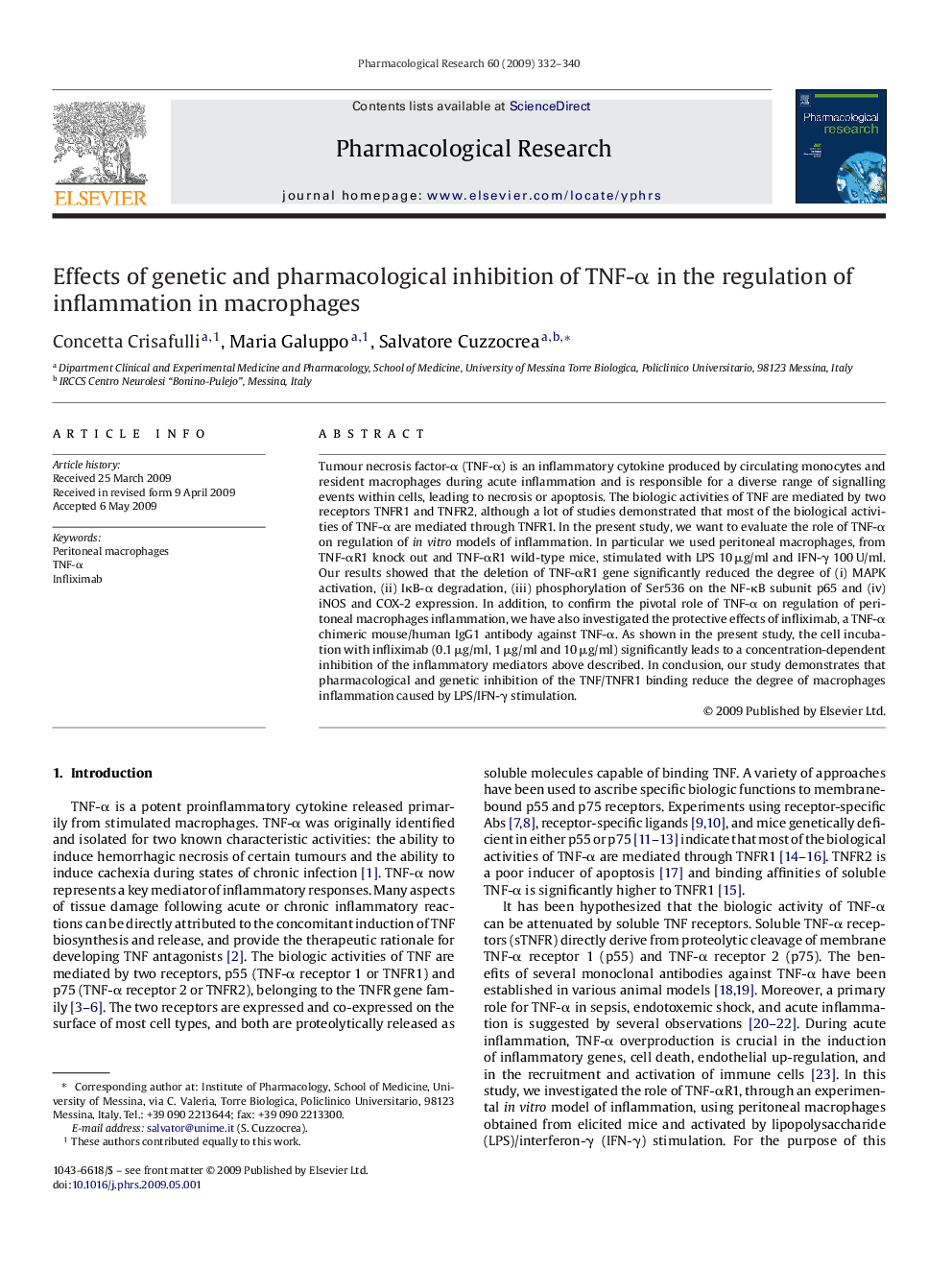| Article ID | Journal | Published Year | Pages | File Type |
|---|---|---|---|---|
| 2562848 | Pharmacological Research | 2009 | 9 Pages |
Tumour necrosis factor-α (TNF-α) is an inflammatory cytokine produced by circulating monocytes and resident macrophages during acute inflammation and is responsible for a diverse range of signalling events within cells, leading to necrosis or apoptosis. The biologic activities of TNF are mediated by two receptors TNFR1 and TNFR2, although a lot of studies demonstrated that most of the biological activities of TNF-α are mediated through TNFR1. In the present study, we want to evaluate the role of TNF-α on regulation of in vitro models of inflammation. In particular we used peritoneal macrophages, from TNF-αR1 knock out and TNF-αR1 wild-type mice, stimulated with LPS 10 μg/ml and IFN-γ 100 U/ml. Our results showed that the deletion of TNF-αR1 gene significantly reduced the degree of (i) MAPK activation, (ii) IκB-α degradation, (iii) phosphorylation of Ser536 on the NF-κB subunit p65 and (iv) iNOS and COX-2 expression. In addition, to confirm the pivotal role of TNF-α on regulation of peritoneal macrophages inflammation, we have also investigated the protective effects of infliximab, a TNF-α chimeric mouse/human IgG1 antibody against TNF-α. As shown in the present study, the cell incubation with infliximab (0.1 μg/ml, 1 μg/ml and 10 μg/ml) significantly leads to a concentration-dependent inhibition of the inflammatory mediators above described. In conclusion, our study demonstrates that pharmacological and genetic inhibition of the TNF/TNFR1 binding reduce the degree of macrophages inflammation caused by LPS/IFN-γ stimulation.
